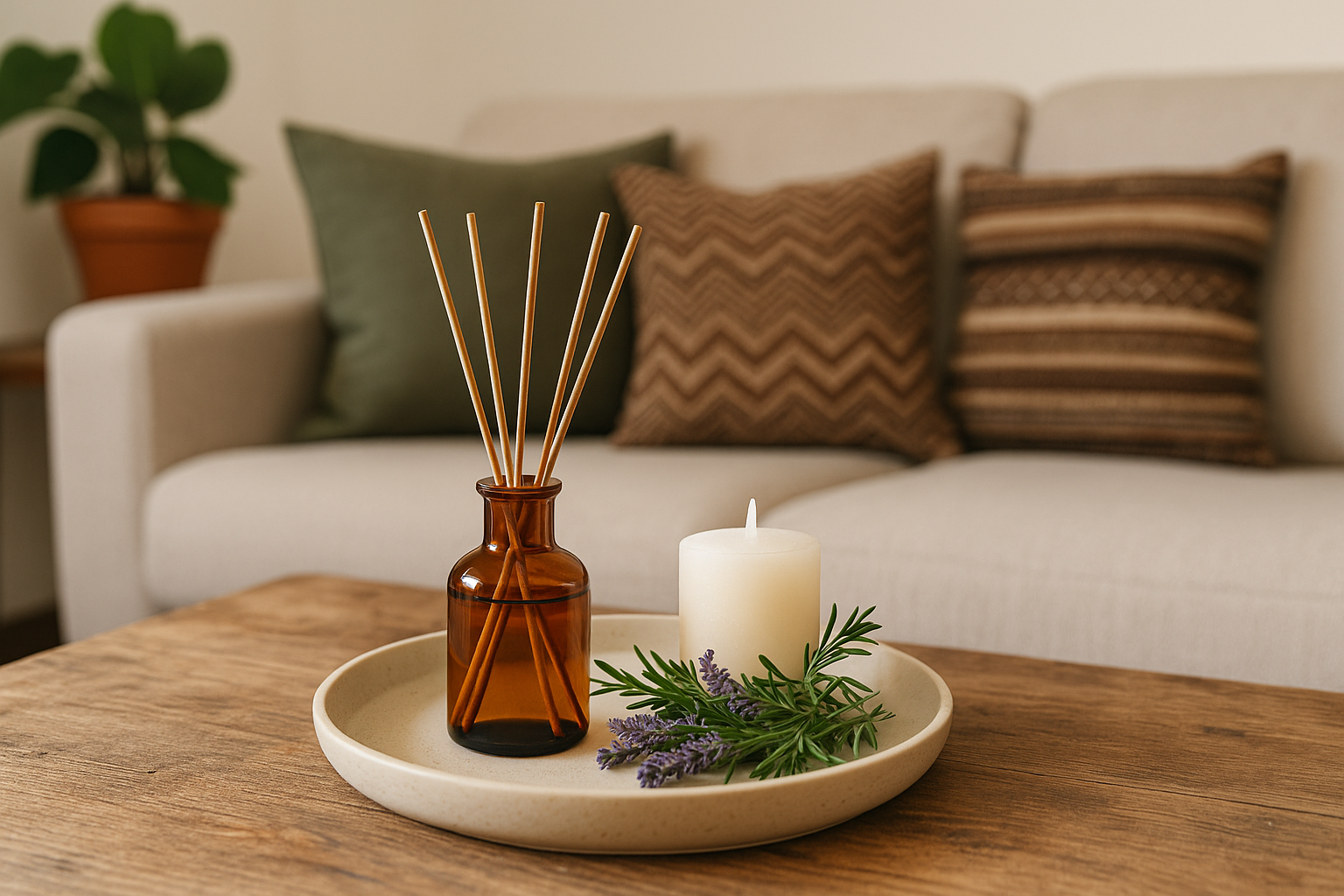Every home has a smell. It may be fresh bread, wood smoke, lavender sprays, or industrial cleaners.
But in Gaúcho culture, fragrance is more than background. It is a statement of identity. The herbs of the Pampas—marcela, rosemary, boldinho, guaco, carqueja, and sage—carry history, memory, and values.
Modern Gaúcho homes may have diffusers and sprays instead of teas and bundles, but the meaning remains.
Fragrance tells who we are, where we come from, and what we want our homes to say.
This article explores how fragrance shapes identity in modern Gaúcho households, how traditions adapt, and how to build scents that honor heritage while fitting contemporary life.
Why fragrance shapes identity
Smell is tied to both biology and culture. It triggers emotions faster than sight or sound. It also carries associations formed in families and communities. For Gaúchos, rosemary does not mean only freshness. It means protection, memory, and endurance. Marcela does not mean only calm. It means Easter mornings, hope, and continuity.
When homes repeat these aromas, they broadcast identity. Guests entering such spaces feel heritage before words are spoken. Children raised in them carry unconscious memories that shape belonging.
The transition from traditional to modern practices
Traditional Gaúcho homes used herbs directly: teas, sachets, smoke. Modern homes use oils, sprays, diffusers, and candles. The form has changed, but the symbolism remains. A marcela spray at bedtime is today’s version of a marcela sachet. A rosemary diffuser is the modern sprig at a doorway.
This adaptation shows resilience. Identity is not frozen—it evolves. By using modern tools with traditional herbs, families keep heritage alive in contemporary life.
The symbolism of key herbs in identity
Marcela
Represents calm, hope, and renewal. Still tied to Easter rituals. Modern homes use marcela sprays for sleep and relaxation.
Rosemary
Symbol of protection and clarity. Once placed at thresholds, now used in diffusers near offices or kitchens.
Boldinho
Represents freshness and balance. Traditionally a tea after meals, today a common ingredient in kitchen sprays.
Guaco
Symbol of compassion and care. Once steamed for colds, now diffused in winter as comfort scent.
Carqueja
Represents resilience and discipline. Its dry aroma anchors blends, still used in sachets and modern infusions.
Sage
Symbol of cleansing and closure. Bundles remain, but sage sprays and oils are now common in urban apartments.
Identity through fragrance in modern homes
Protection identity
Homes that use rosemary sprays at doors continue the tradition of boundaries and safety. Guests recognize the subtle aroma as welcome and shield.
Renewal identity
Marcela remains a marker of hope. Bedrooms with marcela sprays or sachets carry identity of calm, renewal, and continuity.
Freshness identity
Boldinho sprays in kitchens and bathrooms show values of cleanliness and lightness. They signal discipline and care.
Compassion identity
Guaco aromas in living rooms express empathy and family care. They show homes that value comfort and support.
Grounding identity
Carqueja blends in drawers or studies show resilience. They mark homes that value discipline and grounding.
Closure identity
Sage rituals after gatherings express continuity. They show homes aware of cycles and renewal.
Practical examples for modern Gaúcho identity
Doorway spray ritual
- 6 drops rosemary
- 3 drops carqueja
- 100 ml water + 1 tsp alcohol
Spray at thresholds weekly. Symbol of protection adapted to modern sprays.
Bedroom renewal mist
- 7 drops marcela
- 3 drops guaco
- 100 ml water + ½ tsp glycerin
Spray linens before bed. Symbol of renewal and calm.
Kitchen freshness simmer
- 2 tbsp boldinho
- 1 strip lemon peel
- 500 ml water
Simmer after meals. Expresses cleanliness and balance.
Living room compassion diffuser
- 5 drops guaco
- 4 drops marcela
- 2 drops rosemary
Diffuse in evenings. Expresses family care and empathy.
Weekly closure spray
- 4 drops sage
- 3 drops rosemary
- 2 drops marcela
Dilute in 100 ml water. Spray rooms after gatherings. Represents closure and cultural continuity.
Cultural continuity in urban Gaúcho homes
Modern apartments may not allow collecting herbs at dawn, but oils and sprays carry the same symbolism. Identity is preserved through intention. Rosemary in diffusers still means protection. Marcela sprays still mean renewal. Sage rituals still mean closure.
Urban life requires adaptation, but not loss. Heritage lives in modern formats.
Emotional benefits of identity-based fragrance
- Belonging: Children feel connected to heritage through repeated aromas.
- Resilience: Familiar scents reduce stress in uncertain times.
- Communication: Guests sense cultural values without words.
- Continuity: Families avoid cultural amnesia by repeating traditions.
- Strength: Anchors like rosemary and carqueja remind families of endurance.
Mistakes to avoid in identity fragrance
Do not replace herbs with synthetic candles only. Identity requires authenticity.
Do not forget intention. Sprays without meaning lose symbolic power.
Do not overload blends. Simplicity reflects clarity of culture.
Do not ignore storytelling. Children must learn why each fragrance matters.
Building identity-based fragrance routines
- Morning clarity: Rosemary spray at doors.
- Daylight freshness: Boldinho simmer pot in kitchen.
- Afternoon compassion: Guaco diffuser in living room.
- Evening renewal: Marcela spray on linens.
- Weekly closure: Sage ritual at thresholds.
This routine keeps identity alive daily, balancing tradition with modern tools.
Long-term cultural impact
Over years, identity-based fragrance creates memory that transcends generations. Children raised with marcela sprays and rosemary diffusers inherit both health and heritage. Guests entering such homes experience invisible culture. Communities preserve identity not through monuments, but through the air they breathe.
Fragrance thus becomes a living archive. It preserves Gaúcho culture not in books, but in homes, in every mist, sachet, and sprig.
Conclusion
In modern Gaúcho homes, fragrance is identity. Marcela calms with renewal, rosemary protects with clarity, boldinho freshens with care, guaco comforts with compassion, carqueja grounds with resilience, and sage cleanses with closure.
By adapting these herbs into diffusers, sprays, and rituals, families keep culture alive in contemporary life. Fragrance turns modern homes into cultural sanctuaries, places where identity is breathed daily.

Marcela Cardozo is passionate about Southern Brazilian traditions and the cultural stories carried through natural scents. She blends knowledge of native herbs, essential oils, and regional rituals to create practical and inspiring content. Her writing connects ancestral wisdom with modern living, offering readers simple ways to bring authenticity, well-being, and meaning into their everyday lives.
